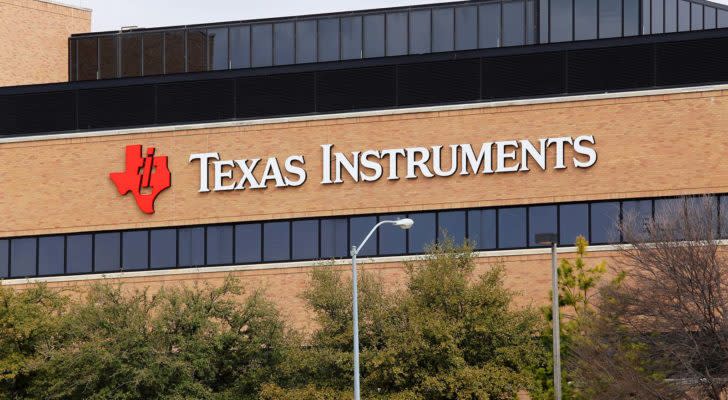The 3 Best Blue-Chip Nasdaq Stocks to Buy Now
The Nasdaq-100 Index is generally considered the de facto proxy for Nasdaq-listed stocks. So it makes sense to pick from this index if you’re looking for the best blue-chip Nasdaq stocks.
Invesco has the most popular Nasdaq 100 ETF, the Invesco QQQ Trust (NASDAQ:QQQ). It has 101 holdings — I believe that’s because Alphabet (NASDAQ:GOOG, GOOGL) has two share classes included in the index — with nearly $174 billion in net assets. But it’s not the only Nasdaq-100-focused ETF.
In October 2020, Invesco launched the Invesco Nasdaq 100 ETF (NASDAQ:QQQM). It did so to provide investors with a cheaper version of the Nasdaq QQQ Trust. It charges 0.15%, 5 basis points less than QQQ’s 0.2% expense ratio. It has $8.9 billion in net assets.
InvestorPlace - Stock Market News, Stock Advice & Trading Tips
Invesco also has an environmental, social and governance (ESG) version, the Invesco ESG NASDAQ 100 ETF (NASDAQ:QQMG). And Direxion puts out an equal-weight version, the Direxion NASDAQ-100 Equal Weighted Index Shares (NASDAQ:QQQE). You get the picture.
For my list of the best Nasdaq blue-chip stocks to buy now, I’ve used three criteria to narrow the field. They must: 1) have a dividend yield of at least 2%; 2) have total debt of 10% or less as a percentage of market capitalization; and 3) generate at least $100 million in free cash flow.
Texas Instruments (TXN)

Source: Katherine Welles / Shutterstock.com
Dividend Yield: 3%
Total Debt: $10.1 billion (6.7% of market cap)
Free Cash Flow (TTM): $4.4 billion
Texas Instruments (NASDAQ:TXN) reported Q1 financial results on April 25. Revenue was $4.38 billion, $10 million more than the analyst estimate. On the bottom line, it earned $1.85 a share, 8 cents higher than the consensus.
Unfortunately, the company’s guidance for second-quarter revenue was $4.35 billion at the midpoint of its outlook, $90 million less than the analyst estimate.
“Revenue decreased 6% sequentially and decreased 11% from the same quarter a year ago,” Chief Executive Officer (CEO) Haviv Ilan said in the accompanying press release. “During the quarter we experienced weakness across our end markets with the exception of automotive, as expected.”
However, long-term investors shouldn’t be put off by the near-term headwinds.
Oppenheimer analyst Rick Schafer raised his price target on the stock by $10 to $195 following the company’s earnings announcement, while maintaining his “outperform” rating.
“We see 2023 as a correction year for TXN and the group. Industrial slowdowns likely spread to auto in 2H,” Barron’s reported his comments. “TXN remains a premier diversified FCF/return story. We are long-term buyers.”
Texas Instruments is as shareholder-friendly as it gets.
Fastenal (FAST)

Source: IgorGolovniov / Shutterstock.com
Dividend Yield: 2.6%
Total Debt: $648.1 million (2.1% of market cap)
Free Cash Flow (TTM): $767.2 million
Fastenal (NASDAQ:FAST) reported better-than-expected Q1 results on April 13. On the top line, revenue increased by 9.1% to $1.86 billion. On the bottom line, net earnings grew by 9.5% to $295.1 million. In addition, diluted net earnings per share rose 10.4% due to fewer shares outstanding.
One area where the distributor of manufacturing and building supplies is doing well is its e-commerce sales. In the first quarter, they rose 48.7% year over year and accounted for nearly 22% of total sales.
“As we’ve seen in prior quarters, we continue to see really strong growth in e-commerce,” CEO Dan Florness said in the Q1 conference call. “Recall that last fall that broke 20% of revenue for the first time.”
In a Bloomberg Opinion piece, Brooke Sutherland offers a note of caution, pointing out that Fastenal’s sales to non-residential construction customers have declined for two consecutive quarters, a sign that companies are tightening spending to brace for a potential recession.
Long term, though, this is a financially sound blue-chip Nasdaq-100 company.
Paychex (PAYX)

Source: Tada Images / Shutterstock.com
Dividend Yield: 2.9%
Total Debt: $870 million (2.2% of market cap)
Free Cash Flow (TTM): $1.5 billion
On April 28, Paychex (NASDAQ:PAYX) announced it would increase its quarterly dividend by 13% to 89 cents a share with the May 2023 payment. As a result, in fiscal 2023 (May year-end), it will return $1.2 billion to shareholders through dividends.
As for share repurchases, it only buys back its stock to account for dilution purposes. It didn’t buy back any of its stock in the third quarter from its $400 million stock repurchase authorization. It has $327.1 million outstanding.
Starting this month, Paychex will no longer process direct deposits or provide other services for cannabis-related companies.
“Cannabis-related businesses (CRBs) continue to face significant banking obstacles because major banks will not allow electronic fund transfers from CRBs over their networks – typically because of differing state and federal regulations around cannabis,” the company wrote in a memo, according to MJBizDaily.
It’s another disappointing blow to the cannabis industry. However, any resentment the industry might have toward Paychex should be redirected at the banks and state and federal legislators. Of course, they live in the Stone Age, but I digress.
Through the first nine months of fiscal 2023, the company generated revenue of $3.78 billion, 9% higher than a year earlier. Its operating income of $1.58 billion was also up 9% from a year ago.
On the date of publication, Will Ashworth did not have (either directly or indirectly) any positions in the securities mentioned in this article. The opinions expressed in this article are those of the writer, subject to the InvestorPlace.com Publishing Guidelines.
Will Ashworth has written about investments full-time since 2008. Publications where he’s appeared include InvestorPlace, The Motley Fool Canada, Investopedia, Kiplinger, and several others in both the U.S. and Canada. He particularly enjoys creating model portfolios that stand the test of time. He lives in Halifax, Nova Scotia.
More From InvestorPlace
The post The 3 Best Blue-Chip Nasdaq Stocks to Buy Now appeared first on InvestorPlace.
